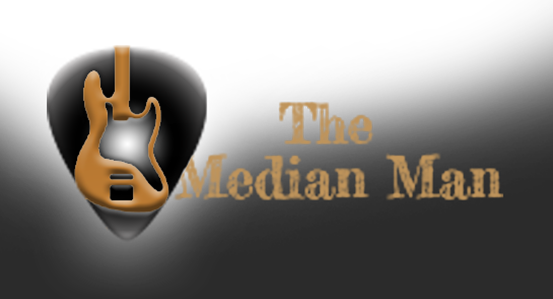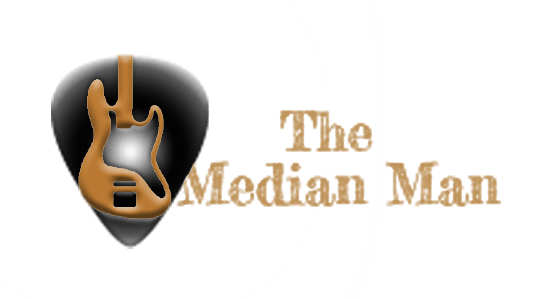What inspired the name of the band? What are your influences and are they the same as when you started out?
We just liked the symbolism of the phrase. Bridge The Gap. Overcome the obstacle. Make it happen.
Why and how do you write what you write?
A new song always starts with a riff for me. I’ve been songwriting long enough that I can sit down with a guitar and workshop a riff to come about. But that’s never how I approach it. Those riffs that eventually inspire a song usually come while I’m holding a guitar, noodling around absent-mindedly while focusing more on something else, like watching a football game, or even having a conversation with someone. My ear will suddenly pick out the coolness or uniqueness of the riff my hands just played, and I go from a subconscious participant to conscious. I can’t read or write music, so usually, I’ll film myself playing the riff (so I don’t forget it), then I’ll come back to it and build on it. Maybe it’s an intro-style riff that everything else has to be built around, or maybe it’s a verse-type riff. Once I have that riff, though, it’s only a short matter of time before I’ve got a song. In our band, we call it the One Source. It’s a magical wellspring of potentiality that every so often opens up and pours out inspiration in the form of a riff. After I have the song built, I’ll start humming and whatnot to find a good vocal melody. That is the most important part of a song. The vocal melody is what most people connect with first. From there, once I have a melody, I’m struck with the tonal direction to take the song from a lyrical, subjective perspective. Those subjects can span the gamut of my personal struggles and inspirations to the world around me, whether it’s a political observation, societal, etc. Songwriting is so cool. There is something metaphysical about it.
We write and play the type of music we want to hear. Honestly, it’s as simple as that. It’s very gratifying to know that other people resonate with our music, and while we love our fans, we don’t make music for them, per se. We make it for us. If we like it, that matters most because it’s a good indicator that our fans will too. We’re just huge fans of melodic punk rock.
Why and how do you write what you write?
A new song always starts with a riff for me. I’ve been songwriting long enough that I can sit down with a guitar and workshop a riff to come about. But that’s never how I approach it. Those riffs that eventually inspire a song usually come while I’m holding a guitar, noodling around absent-mindedly while focusing more on something else, like watching a football game, or even having a conversation with someone. My ear will suddenly pick out the coolness or uniqueness of the riff my hands just played, and I go from a subconscious participant to conscious. I can’t read or write music, so usually, I’ll film myself playing the riff (so I don’t forget it), then I’ll come back to it and build on it. Maybe it’s an intro-style riff that everything else has to be built around, or maybe it’s a verse-type riff. Once I have that riff, though, it’s only a short matter of time before I’ve got a song. In our band, we call it the One Source. It’s a magical wellspring of potentiality that every so often opens up and pours out inspiration in the form of a riff. After I have the song built, I’ll start humming and whatnot to find a good vocal melody. That is the most important part of a song. The vocal melody is what most people connect with first. From there, once I have a melody, I’m struck with the tonal direction to take the song from a lyrical, subjective perspective. Those subjects can span the gamut of my personal struggles and inspirations to the world around me, whether it’s a political observation, societal, etc. Songwriting is so cool. There is something metaphysical about it.
We write and play the type of music we want to hear. Honestly, it’s as simple as that. It’s very gratifying to know that other people resonate with our music, and while we love our fans, we don’t make music for them, per se. We make it for us. If we like it, that matters most because it’s a good indicator that our fans will too. We’re just huge fans of melodic punk rock.
Live?
In constructing a live set, there’s more than one imperative. The performative nature of a show demands that your song selection plays to the audience’s expectation on some level. So our most popular songs on Spotify and Apple Music are definitely gonna make the set list because that’s what our fans in attendance want to hear. And as our most streamed songs, if our fans love them, it’s more likely that people who’ve never heard us will, too. But along the way, the set has to flow as well. It’s fun coming up with a set list, and it’s not unlike sequencing an album. There’s an ebb and flow.
Live?
In constructing a live set, there’s more than one imperative. The performative nature of a show demands that your song selection plays to the audience’s expectation on some level. So our most popular songs on Spotify and Apple Music are definitely gonna make the set list because that’s what our fans in attendance want to hear. And as our most streamed songs, if our fans love them, it’s more likely that people who’ve never heard us will, too. But along the way, the set has to flow as well. It’s fun coming up with a set list, and it’s not unlike sequencing an album. There’s an ebb and flow.
What plans do you have for the future?
Bridge The Gap is heading back to The Blasting Room to record our second album very soon, which we plan to release before summer of 2024. From there, more shows.

